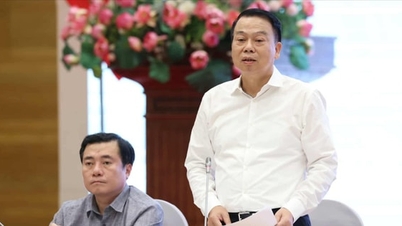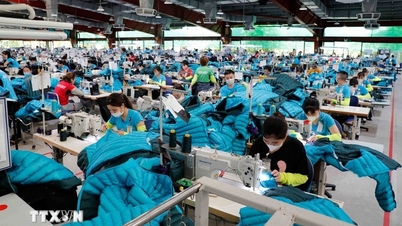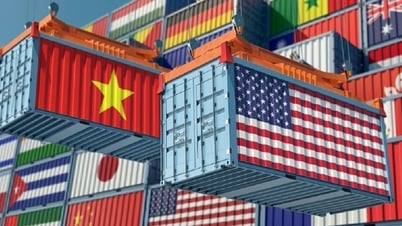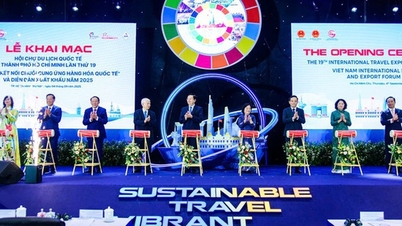
On July 11, in Hanoi , the Vietnam Federation of Commerce and Industry (VCCI) held a workshop to contribute ideas to perfect the draft Law on Special Consumption Tax (amended).
The draft has the fewest words but has a big impact on businesses
The Draft Law on Special Consumption Tax (amended) is being drafted by the Ministry of Finance with many important amendments, including items being added to the list of items subject to special consumption tax, some items having their tax rates adjusted with a specific roadmap, changing the tax calculation method, and some regulations being adjusted to ensure consistency of the legal system.
These amendments will have a huge impact on businesses in the production, trading and consumption chain of goods and services subject to the law and consumers.
Sharing at the workshop, Mr. Dau Anh Tuan, Deputy General Secretary and Head of the Legal Department of VCCI, expressed that perhaps the draft Law on Special Consumption Tax (amended) is one of the drafts with the fewest words but has a great impact on businesses and industries.
Does excise tax reduce obesity?
Regarding the beverage industry, the Ministry of Finance has not added sugary drinks and soft drinks according to Vietnamese standards to this draft.
Commenting at the workshop, Ms. Chu Thi Van Anh, Vice President and General Secretary of the Vietnam Beer - Alcohol - Beverage Association (VBA) said: "Sugary soft drinks are not the only and highest source of sugar and calories.
This is also not the only and main cause leading to overweight, obesity and non-communicable diseases. The Association recommends not imposing special consumption tax on sugary soft drinks and the effectiveness of the tax policy on the goal of protecting health is unclear while causing major impacts on the recovery of the soft drink industry, affecting employment and the economy in general.
Sharing the same view, Ms. Nguyen Viet Ha, Vice President of the American Chamber of Commerce in Hanoi (AmCham Hanoi) also wondered whether tax tools really contribute to protecting health and preventing non-communicable diseases such as overweight, obesity, and diabetes.
Ms. Ha gave an example of the Danish government removing the tax on sugary drinks, then monitoring the rate of overweight and obesity, which did not increase. Because when the tax was imposed, Danes went to other markets in Europe to buy soft drinks at lower prices, leading to a reduction of 5,000 jobs in Denmark.
On the contrary, Associate Professor, Dr. Truong Tuyet Mai, Deputy Director of the Institute of Nutrition (Ministry of Health), said that the goals of protecting people's health are long-term, and it cannot be said that what we eat today will affect our health tomorrow. Therefore, implementing tax policies to change people's consumption behavior is a long-term vision, to protect the health not only of today's people but also of future generations.

Special consumption tax doubled, the rate of people abusing alcohol still increased
A representative of the VBA Association said that beer and alcohol businesses have never suffered such a sharp decline as recently, due to the major impacts of the pandemic, regulations restricting the use of alcoholic beverages and administrative penalties for traffic violations.
Therefore, the recent proposal of the Ministry of Finance shocked businesses by increasing taxes from 2026 to 2030 to increase selling prices, but it is not clear what the basis of the proposal is.
"We are concerned that the tax increase will lead to an increase in indirect taxes on consumers, especially if they switch to using illegal alcohol that is currently unmanageable and does not aim to protect consumers' health. Therefore, the association proposes to delay the increase to avoid shock and allow businesses to adapt," Ms. Van Anh suggested.
Mr. Nguyen Van Phung, member of the Central Executive Committee of the Vietnam Association of Accountants and Auditors (VAA), former Deputy Director of the Tax Policy Department (Ministry of Finance), said that although the special consumption tax on alcoholic beverages has continuously increased since 2008, the consumption of alcoholic beverages has also increased over the years, showing that the special consumption tax has not had a significant impact on changing consumer behavior.
In 10 years (2005-2015), special consumption tax doubled but the rate of people abusing alcohol and beer in the total population increased 10 times.
Experts note that it was not until Decree 100/2019/ND-CP dated December 30, 2019 on administrative sanctions for traffic violations that it had a major impact on alcoholic beverage consumption behavior.
From a business perspective, Mr. Nguyen Thanh Phuc, Director of External Relations of Heineken, proposed applying tax rates according to the alcohol concentration in the product.
First, the 65% tax rate applies to beer products with an alcohol concentration of 5.5% or less.
Second, the 70% tax rate applies to beer products with alcohol concentration from 5.5% to under 15%.
Third, a 75% tax rate applies to beer products with an alcohol concentration of over 15%.
Source: https://laodong.vn/kinh-doanh/nhieu-ban-khoan-ve-du-thao-luat-thue-tieu-thu-dac-biet-sua-doi-1364812.ldo


![[Photo] Prime Minister Pham Minh Chinh inspects and directs the work of overcoming the consequences of floods after the storm in Thai Nguyen](https://vphoto.vietnam.vn/thumb/1200x675/vietnam/resource/IMAGE/2025/10/08/1759930075451_dsc-9441-jpg.webp)
![[Photo] Closing of the 13th Conference of the 13th Party Central Committee](https://vphoto.vietnam.vn/thumb/1200x675/vietnam/resource/IMAGE/2025/10/08/1759893763535_ndo_br_a3-bnd-2504-jpg.webp)






























































































Comment (0)